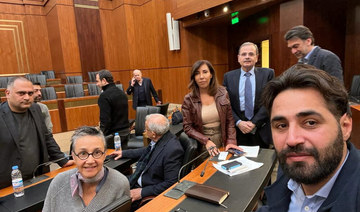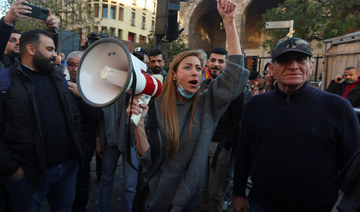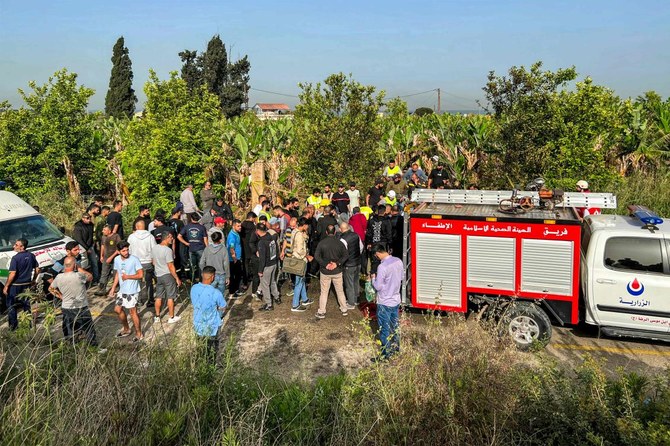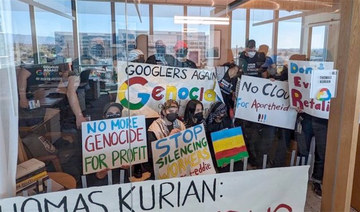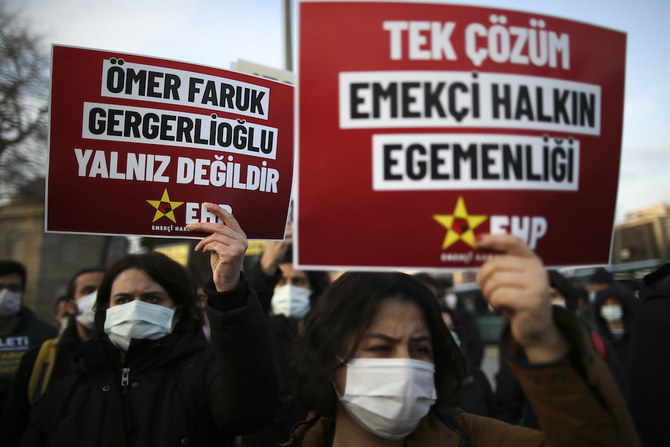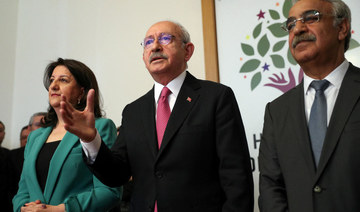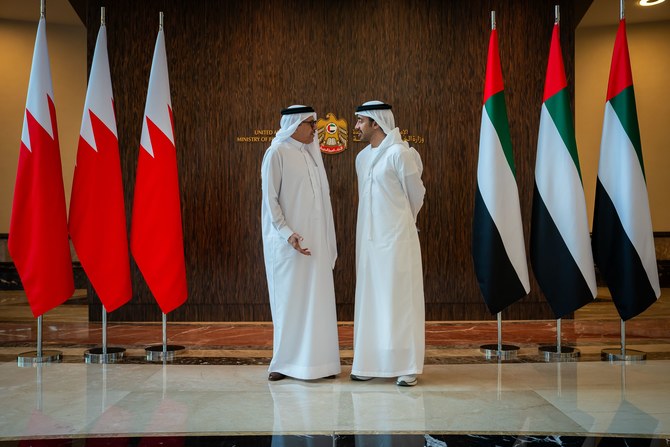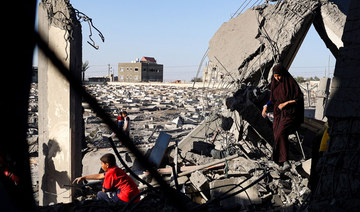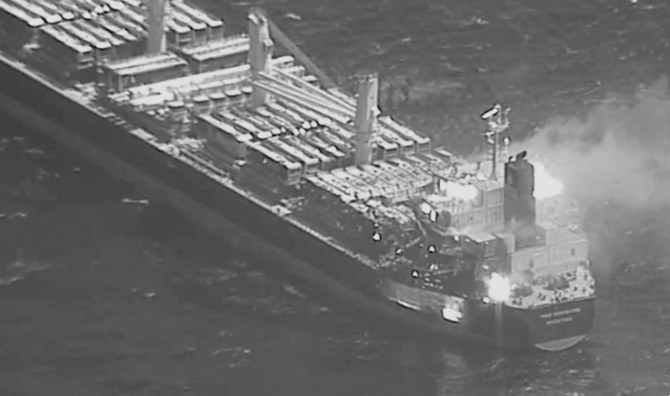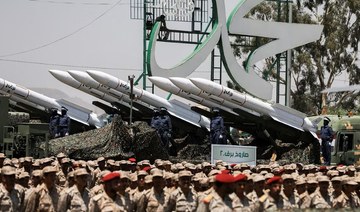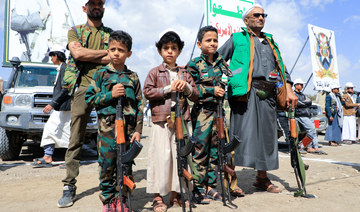BEIRUT: The fallout continued on Tuesday after Tarek Bitar, the Lebanese judge investigating the devastating explosion at Beirut’s port in August 2020, charged the country’s top prosecutor, Ghassan Oueidat, and seven other officials in connection with the blast. They reportedly face allegations of homicide, arson and other crimes.
Bitar surprised many people on Monday when he first announced he was resuming his investigation, which had been suspended for more a year amid political and legal opposition, and then said he would be filing charges against leading security and judicial officials, Oueidat included.
The announcement heightened long-running tensions between Bitar and the public prosecution office. Oueidat rejected the decision and said Bitar “has been removed from the case.”
More than a dozen senior officials are now in Bitar’s sights in connection with the explosion, including Abbas Ibrahim, the head of Lebanese General Security; Tony Saliba, the director-general of State Security; and judges Ghassan Khoury, Carla Shawah and Jad Maalouf.
The explosion on Aug. 4, 2020, destroyed most of Beirut’s port and neighboring parts of the capital, killing more than 215 people and injuring more than 6,500.
Information leaked by the Bar Association revealed that Bitar has filed charges against Oueidat, the country’s highest judicial authority and member of the Supreme Judicial Council; Brig. Gen. Assaad Toufaili, chairman of the Supreme Council of Customs; Gracia Al-Azzi, a member of the Supreme Council of Customs; Brig. Gen. Camille Daher, the former head of military intelligence; Jawdat Oueidat, a former senior military intelligence officer; and Gen. Jean Kahwaji, a former army commander.
Bitar has also subpoenaed former Prime Minister Hassan Diab, MPs Ghazi Zeaiter and Ali Hassan Khalil, and former MP Nohad Machnouk. They responded by filing complaints against Bitar and calling for his removal from the case.
Bitar intends to interview them in the coming month about their alleged roles in “possible intentional killing” and “functional negligence.” On Tuesday, he notified Diab, Machnouk and Zeaiter of the dates on which they are expected to appear for questioning and displayed the summons sent to them.
The judge said he based his decision to resume his inquiry on a judicial study that found he was permitted to resume his judicial work 13 months after it was suspended as a result of complaints filed against him.
His announcements were welcomed by the families of the victims of the explosion, and of those detained in connection with it, who expect Bitar to question senior officials suspected of blame.
But Hatem Madi, a former prosecutor general, told Arab News: “I am worried about the weak image and fragile reputation of the judiciary. The study that Bitar relied on to resume work is a fatal error.”
Bitar’s move revived political debates and fears of escalating tensions on the streets, as dozens of protesters blocked a road in the Al-Shiah-Ain Al-Rummaneh area of Beirut with burning tires.
Previous protests, reportedly instigated by Hezbollah and the Amal Movement, demanding Bitar’s removal from the case escalated into a bloody confrontation with residents of a Christian-majority area.
A parliamentary committee meeting on Tuesday that was due to discuss laws on the independence of the judiciary descended into squabbling and heated exchanges between representatives of Hezbollah and the Amal Movement, who accused Bitar of “implementing foreign agendas,” and MPs from parties that oppose Hezbollah, who support the judge and his work.
Oweidat issued a statement on Tuesday saying that Bitar had “ignored us and considered that we do not exist as the public prosecution, and in return we will consider him non-existent.”
He denied that he intended to sue Bitar and added: “This matter is out of the question. Judge Bitar has his hands tied and the decision to return to work is illegal.”
In addition to announcing the charges against top officials, Bitar had also requested the release, without bail, of five people detained in connection with the case and that they be prevented from traveling. In light of row over his decisions, the detainees have not been released. A total of 17 people are currently in custody.
In a message posted on its official Twitter account, the US embassy in Lebanon wrote: “We support and urge Lebanese authorities to complete a swift and transparent investigation into the horrific explosion at the Port of Beirut.”





